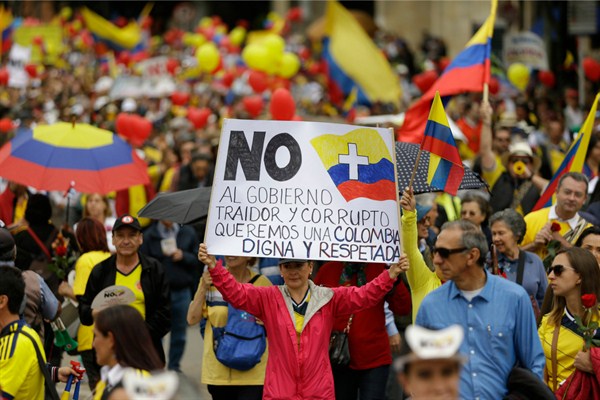Colombia is inching closer to a future free of armed guerrilla groups. Talks with the 52-year-old, 7,000-person Revolutionary Armed Forces of Colombia, or FARC, are far along, even though they missed a March 23 deadline for a final accord. Government and FARC negotiators in Havana have reached agreements on most of the negotiating agenda, and they are probably weeks away from a bilateral cease-fire with U.N. verification.
The FARC, though, isn’t the only guerrilla organization in Colombia whose origins date back to 1964. The National Liberation Army, or ELN, has about 1,800 fighters plus a larger support network and is active in a few regions of the country. But it has not been in formal peace negotiations, despite more than two years of exploratory “talks about talks” with Bogota. The prospect of continued war with the ELN has threatened to dampen the impact of a FARC peace deal: If still at large, the smaller guerrilla group could recruit former FARC fighters and move into previously FARC-dominated territories.
It’s important, then, that the Colombian government and ELN announced on March 30 that they are finally launching formal peace talks. Negotiators are to begin work on a six-point agenda in about 60 days in Ecuador. From time to time, the negotiating table will move to Brazil, Chile, Cuba and Venezuela. Norway is also serving as a guarantor state.

